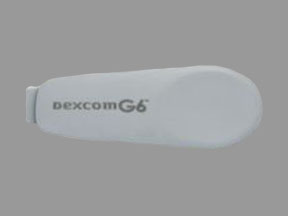
Dexcom G6 Transmitter Coupons & Savings Card – Discount Prices from $49.94
My prescription
Edit
1, Dexcom G6 Transmitter (1 Miscellaneous)
Select pharmacy

CVS
$60.64
COUPON PRICE
Albertsons
$49.94
COUPON PRICE
Walmart
$59.94
COUPON PRICE
Walgreens
$61.83
COUPON PRICEDexcom G6 Transmitter savings card
Show this card to your pharmacist
CVS
$60.64
BIN
ID
PCN
GRP
015995
LHKPY241770
GDC
DR33
Powered by
Price history for Dexcom G6 Transmitter
1 Miscellaneous, 1nan
Average retail price for Dexcom G6 Transmitter
Average SaveHealth price for Dexcom G6 Transmitter
Our price history data is based on aggregated prescription data collected from participating pharmacies in America. Our prescription data updates daily to reflect the latest price changes. If you notice a missing data point, it means there wasn't sufficient data available to generate a monetary value for that date.
*Retail prices are based on pharmacy claims data, and may not be accurate when we don't have enough claims.
Dexcom G6 Transmitter dosage forms
Dosage Quantity Price from Per unit 1nan 1 Miscellaneous $237.81 $237.81
| Dosage | Quantity | Price from | Per unit |
|---|---|---|---|
| 1nan | 1 Miscellaneous | $237.81 | $237.81 |
Do I need a prescription for a Dexcom G6 transmitter?
Yes, a prescription is required for a Dexcom G6 transmitter. It is important to consult with a healthcare provider to obtain the necessary prescription.
Using the SaveHealth discount card, what is the price of Dexcom G6 Transmitter without insurance?
Using the SaveHealth discount card, the price of Dexcom G6 Transmitter without insurance is $49.94.
What is the price of Dexcom G6 Transmitter at CVS?
The price of Dexcom G6 Transmitter at CVS is $60.64.
What is the price of Dexcom G6 Transmitter at Walgreens?
The price of Dexcom G6 Transmitter at Walgreens is $61.83.
What is the price of Dexcom G6 Transmitter at Walmart?
The price of Dexcom G6 Transmitter at Walmart is $59.94.
